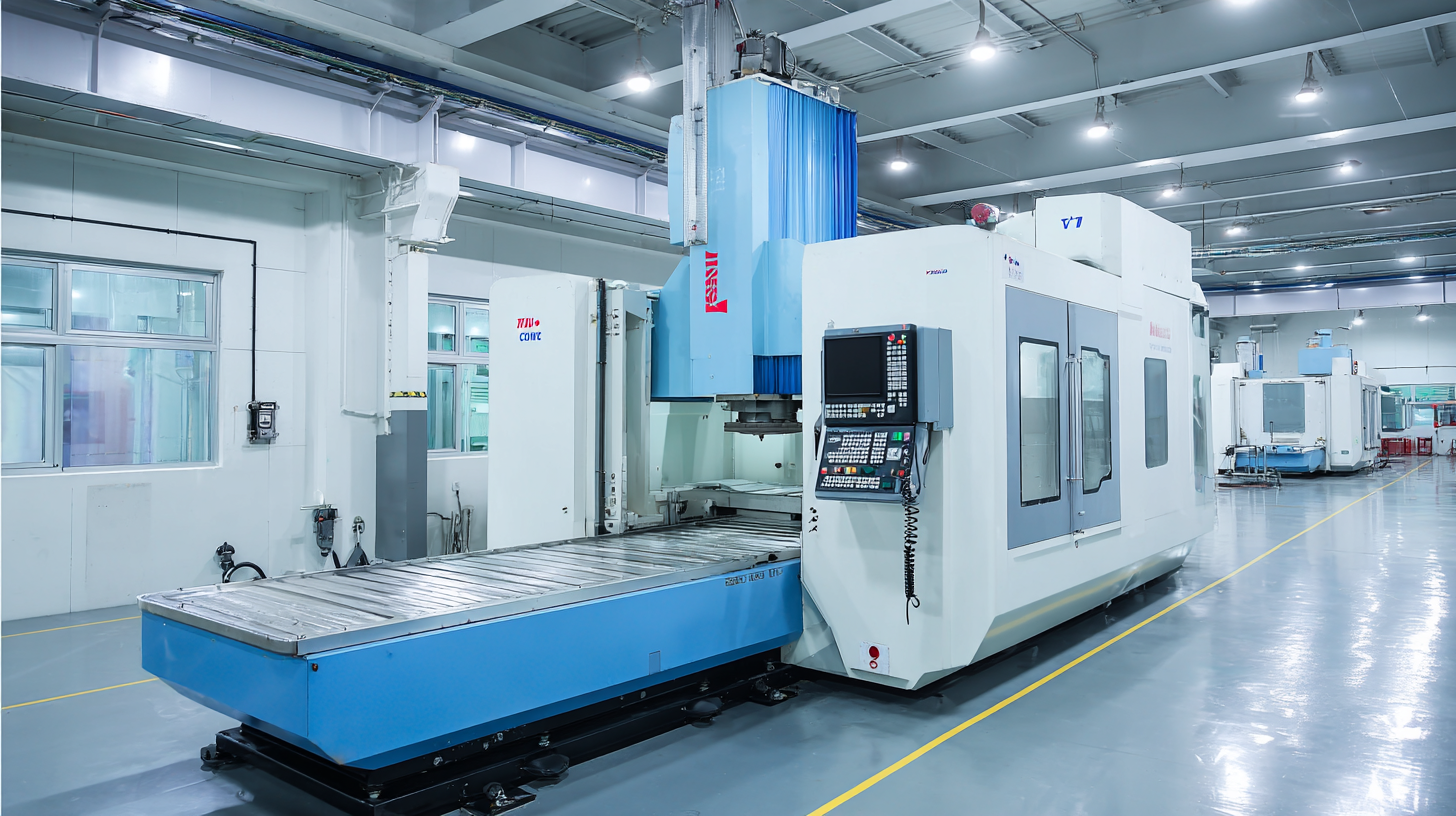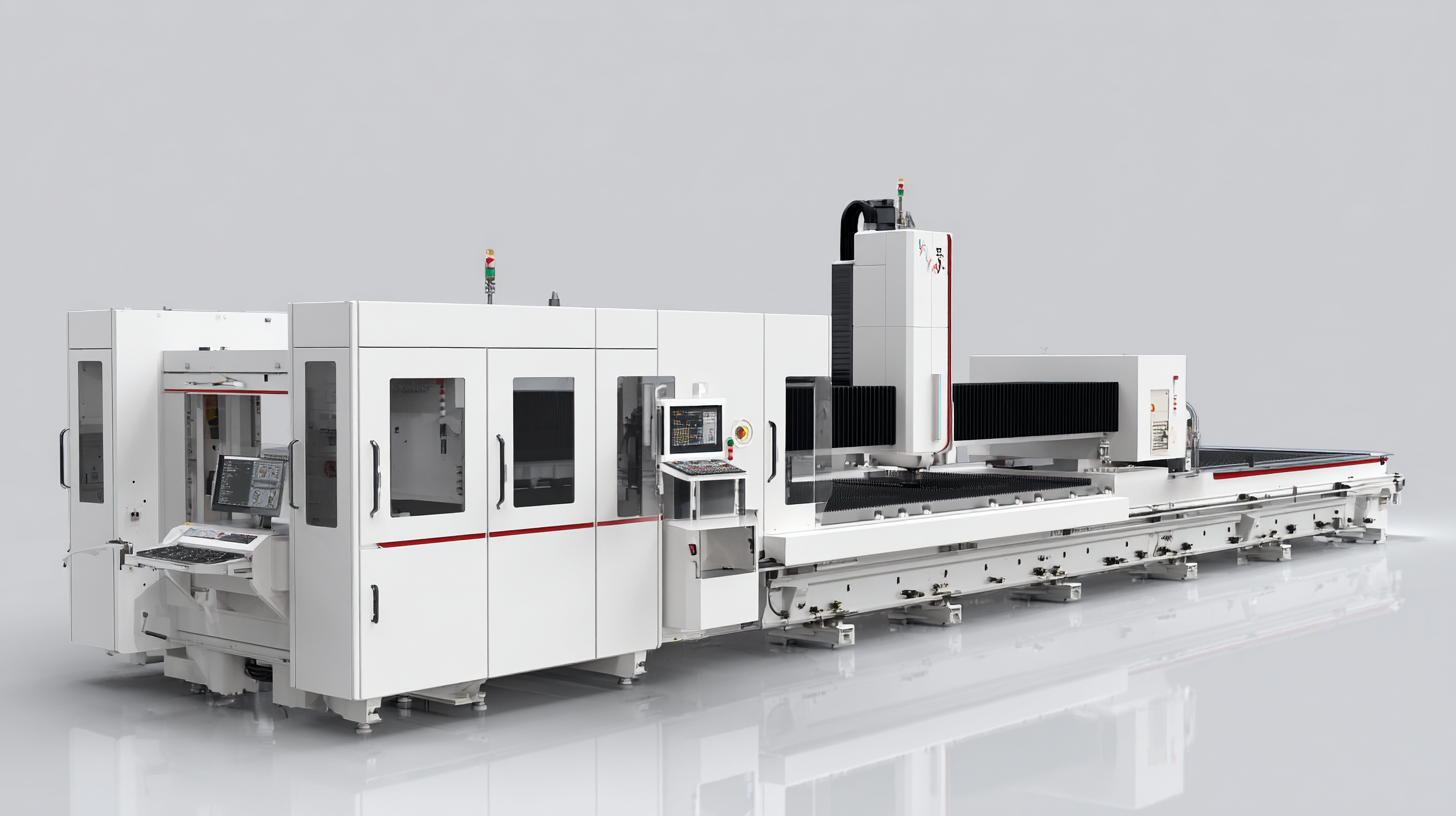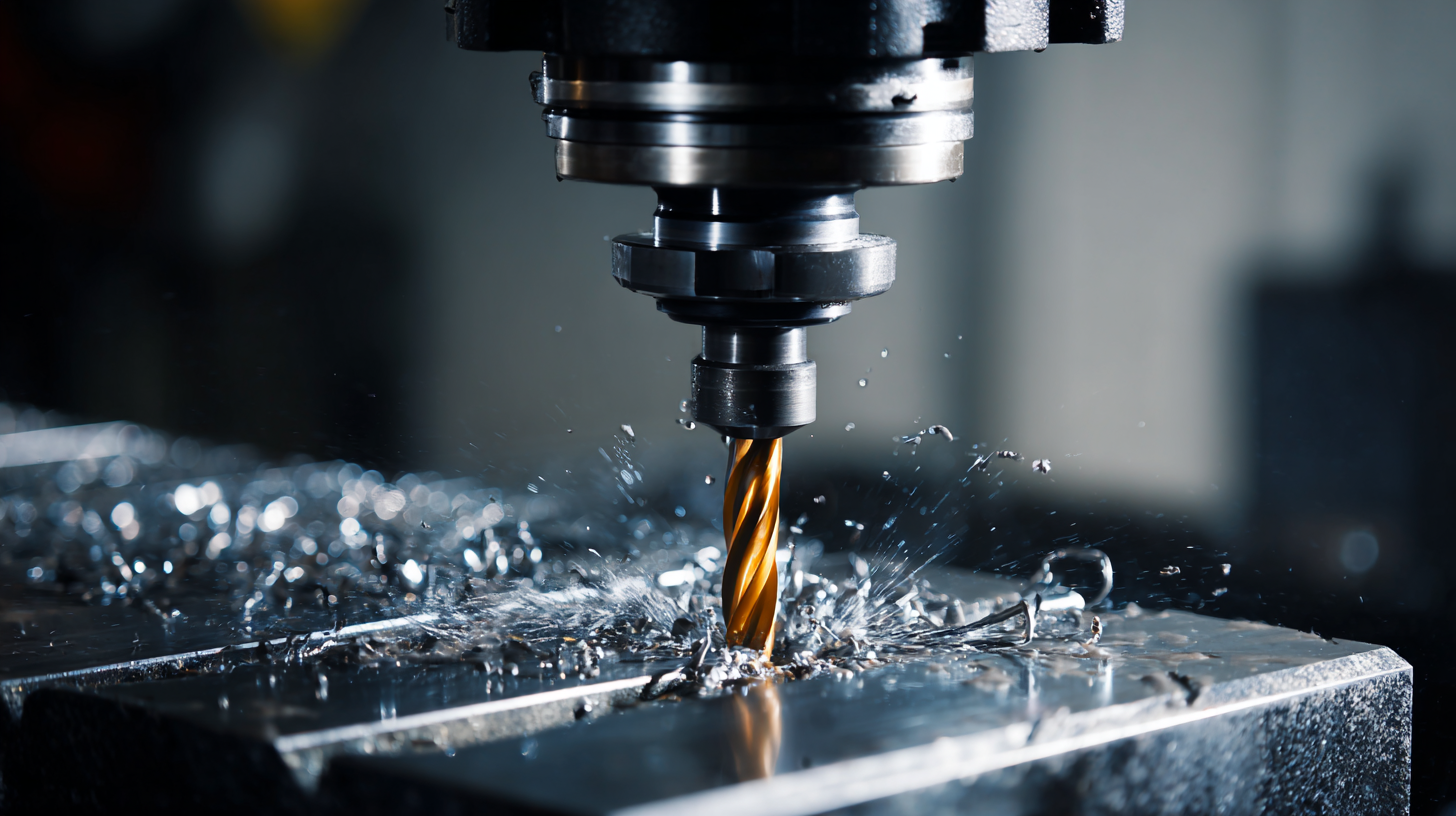METROM’s
Blog
METROM’s
Blog
Top Strategies for Choosing the Best CNC Machine Tools for Your Business
As the global manufacturing landscape continues to evolve, the demand for high-quality CNC machine tools has reached unprecedented levels. According to a report from MarketsandMarkets, the CNC machine tools market is projected to grow from USD 82.91 billion in 2020 to USD 130.15 billion by 2025, highlighting the critical role these technologies play in enhancing productivity and precision in production processes. In this context, Chinese manufacturers are emerging as leaders in the sector, showcasing their export strengths with superior products that cater to diverse industrial needs.

With advancements in automation and smart manufacturing, selecting the right CNC machine tools is paramount for businesses aiming to gain competitive advantages. This blog will explore top strategies for choosing the best CNC machine tools tailored to your business requirements, emphasizing the importance of quality, technology, and cost-effectiveness in the decision-making process.
Understanding Core CNC Machine Tool Types and Their Applications
When selecting CNC machine tools for your business,
it's essential to understand the core types and their practical applications to make informed decisions.
The three main CNC machine tool types include CNC mills, CNC lathes, and CNC routers. According to a report by Technavio, the global CNC machine market is expected to grow by over $4 billion between 2021 and 2025, highlighting the increasing adoption of CNC technology across various industries.
CNC mills are versatile and capable of handling complex shapes and contours, making them ideal for industries such as aerospace and automotive. In contrast, CNC lathes excel at producing cylindrical parts with high precision, which is vital in manufacturing processes for machinery and equipment. CNC routers provide an excellent option for woodworking and plastics, offering speed and flexibility in cutting intricate designs.
Tips: Invest in machines that offer the best return on investment based on your production needs. Evaluate the specific materials you will be working with, as certain machine types are better suited for particular applications. Additionally, consider the machine's compatibility with your existing technology to ensure a smooth integration into your workflow.
Evaluating Precision and Quality Standards in CNC Machinery
When selecting CNC machine tools for your business, evaluating precision and quality standards is paramount. Precision in CNC machining is critical because it directly affects the quality of the finished product. A machine's ability to consistently produce parts that meet tight tolerances reduces waste and enhances overall efficiency. Therefore, it's essential to assess the manufacturing tolerances specified by the machine tool. Look at factors such as the machine’s repeatability, which indicates how closely it can reproduce the same feature, and the maximum deviation allowed from a specified dimension.
Quality standards also play a vital role in the longevity and reliability of CNC machinery. Investigate the certifications and standards that the machine adheres to, such as ISO 9001 or CE marking, which reflect a commitment to international quality benchmarks. Furthermore, consider the materials used in the construction of the machine tool, as higher-grade materials will typically contribute to better performance and durability. Investing in machinery that meets rigorous quality criteria not only enhances the production process but also helps in maintaining a competitive edge in the market.

Cost Analysis: Balancing Budget and Performance in CNC Tool Selection
When selecting CNC machine tools for your business, it's crucial to conduct a thorough cost analysis that weighs both budget constraints and performance capabilities. The efficiency of high-precision machine tools significantly influences machining outcomes and ultimately your bottom line. Recent studies indicate that the dynamic and static rigidity of these machines directly correlates with machining efficiency and surface quality, highlighting the importance of investing in the right equipment.
Moreover, exploring various cutting tools can lead to substantial improvements in productivity. A comparative analysis of cutting tools, such as PCBN, mixed ceramics, and coated carbide, has shown distinct performance differences in finish turning applications. These distinctions are pivotal; for instance, a coated carbide tool might offer better wear resistance and surface finish, even if its initial cost is higher. Incorporating energy-saving optimization methods for CNC machine tools can further enhance operational efficiency, reducing long-term costs without sacrificing performance. By focusing on these elements, businesses can achieve a balanced approach to CNC tool selection that aligns with both budgetary requirements and productivity objectives.
The Role of Software Integration in Enhancing CNC Machine Efficiency
In the rapidly evolving landscape of CNC machining, software integration plays a vital role in enhancing machine efficiency and productivity. The introduction of digitalization tools, such as comprehensive software portfolios designed for shopfloor management and optimization, is transforming how businesses operate. These tools leverage data analytics and automation to streamline processes, allowing manufacturers to make informed decisions that lead to improved operational performance. As businesses embrace these advanced solutions, they can effectively minimize downtime and maximize throughput.

Moreover, the integration of digital twin technology opens a new horizon for predictive maintenance in CNC machines. By creating a virtual representation of physical machines, manufacturers gain real-time insights into their operations, enabling proactive maintenance schedules and reducing unexpected failures. This not only enhances machine reliability but also significantly cuts down on maintenance costs. In an industry projected to grow substantially over the next decade, investing in robust software integration and digitalization frameworks is essential for businesses seeking to stay competitive and achieve sustainable growth.
Assessment of Supplier Reputation and Service in CNC Machine Tool Acquisition
When investing in CNC machine tools, evaluating the supplier's reputation and service quality is paramount. A reputable supplier often mirrors the reliability of the machinery they provide. Start by researching the supplier’s history in the industry, including how long they’ve been in business and their track record in supporting clients. Verify their credentials, seek customer testimonials, and check online reviews to gain insights into their customer service and product reliability. A strong reputation typically indicates a commitment to quality and customer satisfaction, which can significantly impact your operational efficiency.
Moreover, the level of service provided by a supplier can greatly influence your purchasing decision. Inquire about their support structure, including availability for maintenance, training, and troubleshooting. A responsive support team can save you downtime and costly repairs. Additionally, consider the supplier's willingness to offer extensive after-sales service, replacement parts availability, and warranty terms. Choosing a supplier that prioritizes customer service ensures not just a successful purchase but a productive partnership that can support your business’s growth.

